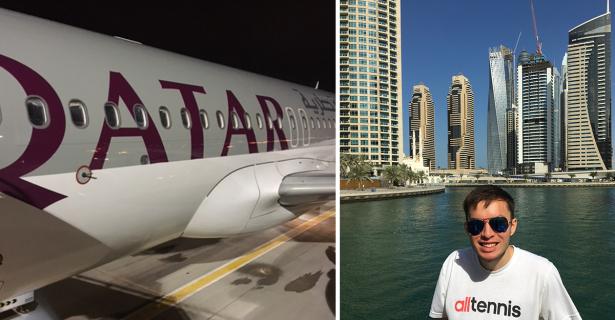After conducting research in both the United Arab Emirates (UAE) and Qatar this month, I am excited to elaborate further about the Qatari angle of the corporate environment in the Gulf Cooperation Council (GCC) states.
Overall, the current corporate environment in the GCC remains multifaceted. On one hand, there is the formalized cease of all diplomatic relations, thus temporarily halting corporate communications with Qatar. On the other hand, companies remain in contact with their Qatari clients or offices via proxy offices, in order to continue working with those in Doha. These two corporate facets remain weaved throughout the respective societies, depending on whether the firm in question is multinational or GCC-based.
Since June 5, 2017, travel to Qatar is much more difficult due to the diplomatic crisis. Several GCC countries have suspended air, sea and land transport with Qatar. My trip was fairly seamless via Oman, and I arrived to find a Qatar that was buzzing with excitement as the World Cup was reaching its latter stages and eyes were beginning to turn to Qatar 2022, when Doha will host the major sporting event. The reason why I bring this up is important, as the corporate environment that is unique to Doha is about to get a metaphorical jolt (or so one would think), ahead of the 2022 event.
With this information, I began to examine those who would particularly benefit from the World Cup coming to Doha and how this might change the GCC socio-political dynamic. While Dubai will be hosting the World Expo 2020, the World Cup will take in a much larger and less political audience than that of the Expo.
Business leaders throughout the city are excited for their upcoming prospects, especially those in the transportation, construction and lodging industries, as a new Metro line, enhanced public transportation, service to roads, as well as much needed updates to hotels and apartment buildings around the city call for a major public works overhaul in the next two or three years.
The majority of those who I spoke with in Doha remain optimistic for the future of their business operations, specifically highlighting closer ties to Iran and Turkey in assisting Qatar as a state in time of need.
Business leaders of top Qatari firms noted that while there has been a slight decrease in operations around the GCC neighborhood, operations in Europe have soared and Qatar remains primed for a major presence on the international stage in some lesser known fields, including that of higher education, banking, Islamic Finance, the arts and culture.
Corporate security was a particularly interesting topic discussed in my various meetings, as leaders felt their companies were more secure than they were prior to June 5, 2017. Companies are now more aware of how to act independently, outside of the shadow of their fellow neighbors.
Some even went as far to say that while the complicated diplomatic situation in the region was tense, it could serve as a major point of advancement for Qatar in the international arena, raising awareness of the ongoing activities in Doha and highlighting the prospective landscape that will soon become available in the country for foreign investors and allies.
I look forward to continuing my research on this topic.

